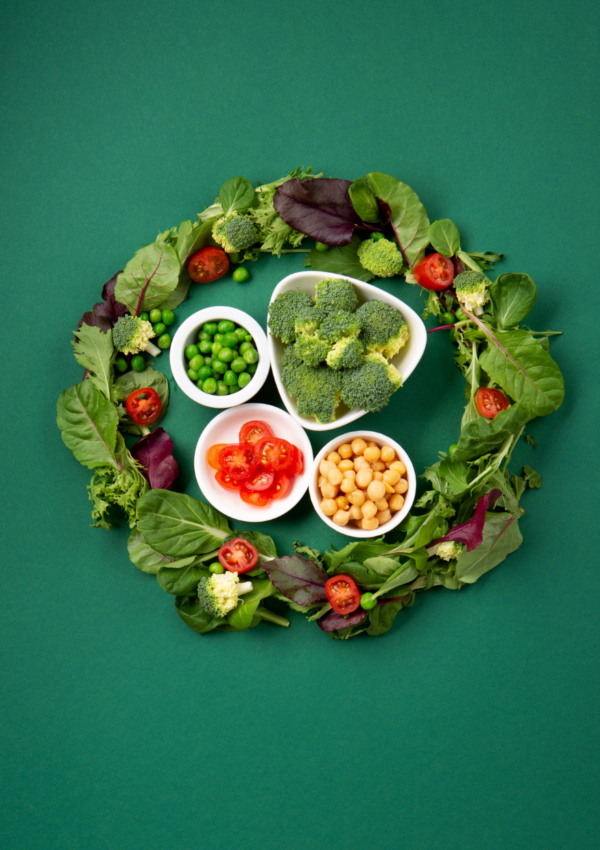At 5-6 months old, our Son was diagnosed with multiple allergies and food intolerances. An asthma diagnosis came about a year later. On a scale of 1-10 with 10 being the worst and requiring an EpiPen, his allergies are:
- Peanuts, pistachios, and most tree nuts (about 7-8)
- Egg (about 6)
- Milk and dairy (about 5)
As such, our Son’s diet from about 6-months old, when he started on solids, has been largely plant-based.
He loves all fruits and vegetables, fish (mostly salmon), and select meats including minced beef, turkey, and steak or sausages. He’s also been drinking non-cow’s milk from about 6-months old.
This is the reason our family is familiar with great substitutes for cow’s milk and meat protein. My husband and I encourage our Son to try all substitutes and while sometimes he takes a liking to some things he might only take a single bite of something else.
We don’t dismiss what he doesn’t eat first time though and will try offering it another time. Just like steak and sausages, our Son will refuse these when he’s not in the mood but devour them on other occasions!
So, over the past 2.5 years here is what we’ve found.
Substitutes for cow’s milk
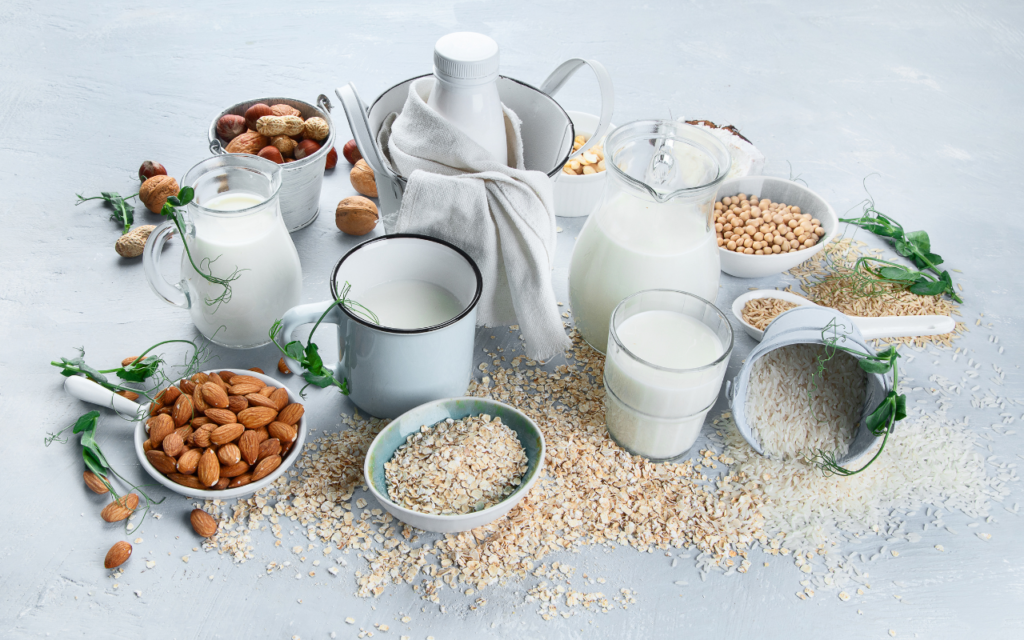
When we first learned about our Son’s allergies and intolerances, we were concerned about him missing out on what he needed from cow’s milk to grow and develop.
What we discovered was that the demand for plant-based milk as a substitute for dairy had risen significantly in recent years. To begin with and for the first two years of his young life, he had prescription substitute formula milk. At about £30 a tin, we are grateful for the NHS that our Son was could get the nutrients he needed through this milk for his development.
When the dietician advised he was ready for plant-based milk after his second birthday, we were introduced to the growth of plant-based milks. I’m still amazed at the array of plant-based milks on supermarket shelves!
Whether you’re dairy or lactose intolerant, vegan, or looking to reduce your environmental footprint, plant-based milks offer a versatile way to enjoy your favourite drinks, cereals and recipes.
Our Son enjoys these three plant-based milks:
Oat milk – offers a good source of fibre that aids digestion and promotes feelings of fullness. Oat milk is naturally higher in sugar than other plant-based milks, so it’s best to go for reduced-sugar options. Look for unsweetened versions that contain only oats and water. Our Son also loves Oatly yoghurt.
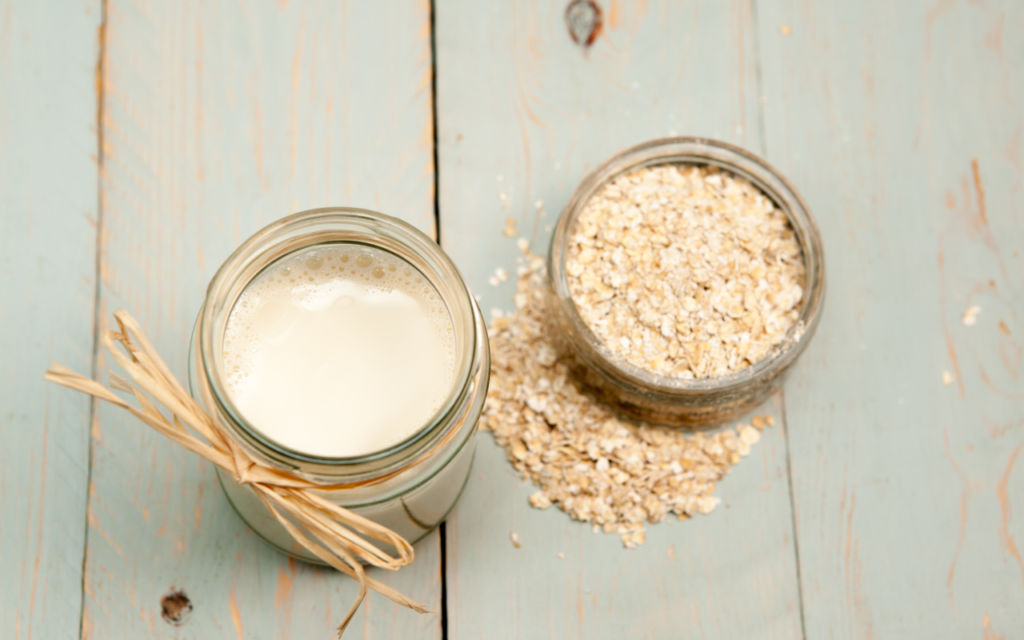
Coconut milk – my favourite! As a drink it’s rich and velvety. In savoury and sweet dishes like smoothies, desserts, and curries it adds depth. We love coconut based cheese and use it often in home-made pizza (made in the Tefal air fryer which we love). We also love yoghurt from The Coconut Collab. While coconut milk provides healthy fats and other nutrients that support the immune system, it is lower in protein and carbohydrates than other plant-based milks.
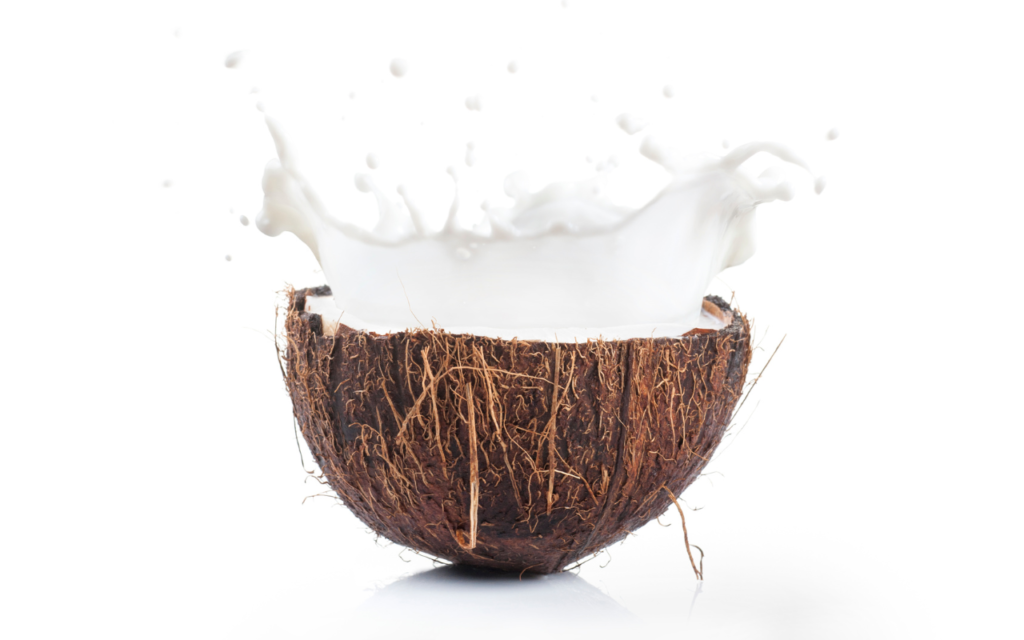
Rice milk – is popular in East Asia and made from milled rice and water. It is a light and sweet option (due to starch in rice), and good for people with nut or gluten allergies. Rice milk is however less nutritionally dense.
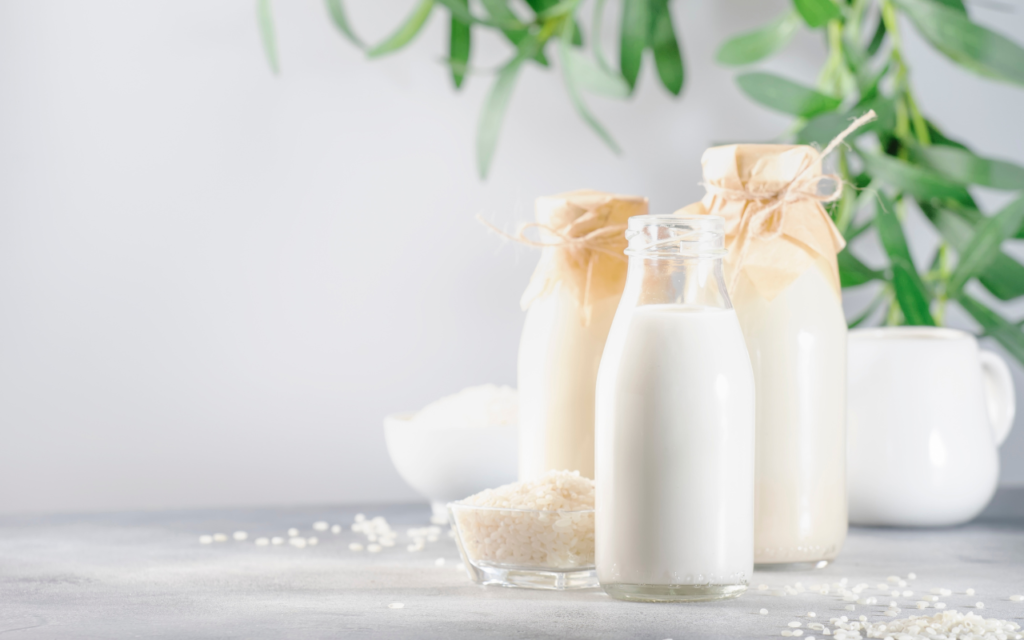
Then there are other wonderful plant-based milks, which our Son can’t have due to his nut allergies. We are therefore less familiar with these, but here’s what I know from research:
Almond milk
Its nutty flavour and smooth texture makes this great for cereals and smoothies. Almond milk is naturally low in sugar (and calories) and contains healthy fats, so great for low-sugar diets.
Pistachio milk
Is nutrient-rich and nutty in flavour. It contains healthy fats, protein and fibre, plus essential vitamins and minerals like vitamin B6, potassium and antioxidants.
Cashew milk
Is probably the best substitute for cooking as it is the thickest, creamiest and most milk-like of all the nut milks. It contains a rich source of copper, magnesium and manganese which are important nutrients for energy production, brain health, immunity and bone health.
Hazelnut milk
Provides a great source of vitamins and minerals, including vitamin E, magnesium and calcium, which contribute to skin health, bone strength and overall well-being. It is also rich in healthy fats, which can support heart health, reduce inflammation and lower cholesterol.
Walnut milk
This is known to as a great brain-food because of its omega-3 fatty acids. Slightly bitter, walnuts are also abundant in vitamin E and antioxidants to help protect cells from toxin damage.
Tiger nut milk
Creamy and nutritious, Tiger nuts are the size of a chickpea but wrinkly with a chewy texture and sweet nutty flavour like coconut. They were one of the first plants cultivated in Egypt and traditionally used as food and medicine. It’s a filling nut because they are rich in fibre, vitamin E, magnesium and potassium.
Sunflower Seed & Pumpkin Seed Milks
These are rich in healthy fats, protein and nutrients. Sunflower seeds are rich in magnesium, phosphorus, manganese, selenium, vitamin E and B vitamins. They’re also good for the gut as are full of prebiotics. Pumpkin seeds on the other hand contain iron, magnesium, potassium, protein, fibre, and zinc – a mineral great for healthy skin, immune function and fertility!
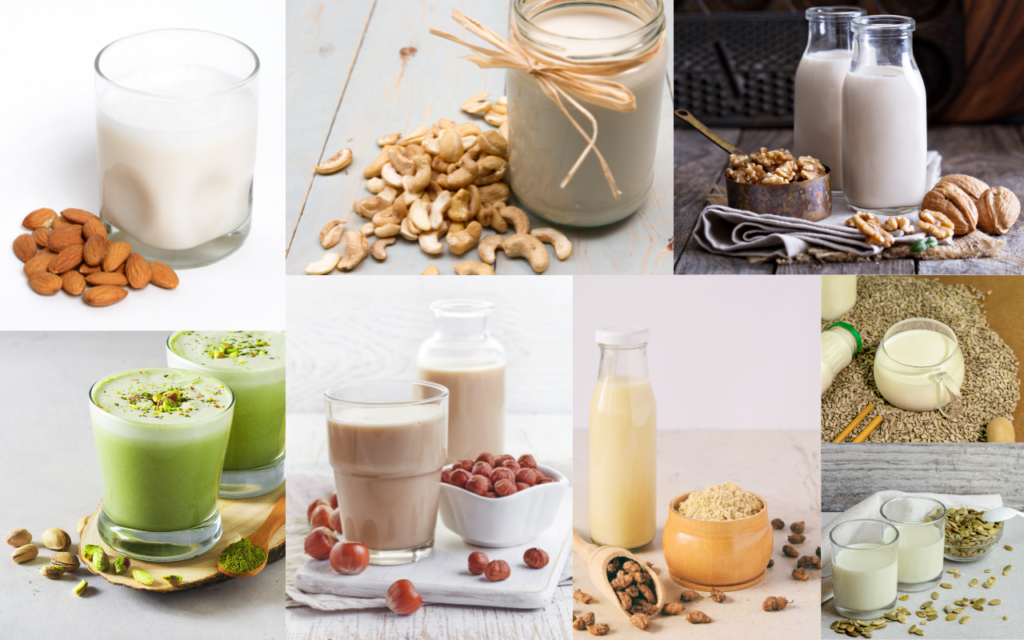
Best meat free protein
As a result of our Son developing a predisposition to a plant-based diet due to his allergies, my husband and I are always mindful to include good protein based food in his meals for a balanced diet.
Based on advice from our Son’s dietician, research, and experience, we have found the following to work well:
Beans and lentils
Are high in amino acid and make excellent meat substitutes. They’re also rich in fibre and work well to aid digestion. Beans are also versatile and we tend to use them in soups and stews.
Quinoa
Is packed with protein so a great alternative to meat but also quite filling so a good replacement for staples like rice and pasta. Being gluten-free it’s easy to digest too. Like beans and lentils, its high fibre content aids digestion, regulates blood sugar levels, and supports heart health. We like it in soups, stews, and salads, particularly with salmon, avocado (and an egg for Mum and Dad).
Mushrooms
Are another excellent meat substitute. Unfortunately, our Son’s not a fan but I’m hoping this will change as I personally love them. There is also currently some research taking place about their therapeutic effects on the immune system, particularly in cancer, which I’ll be keeping a close eye on.
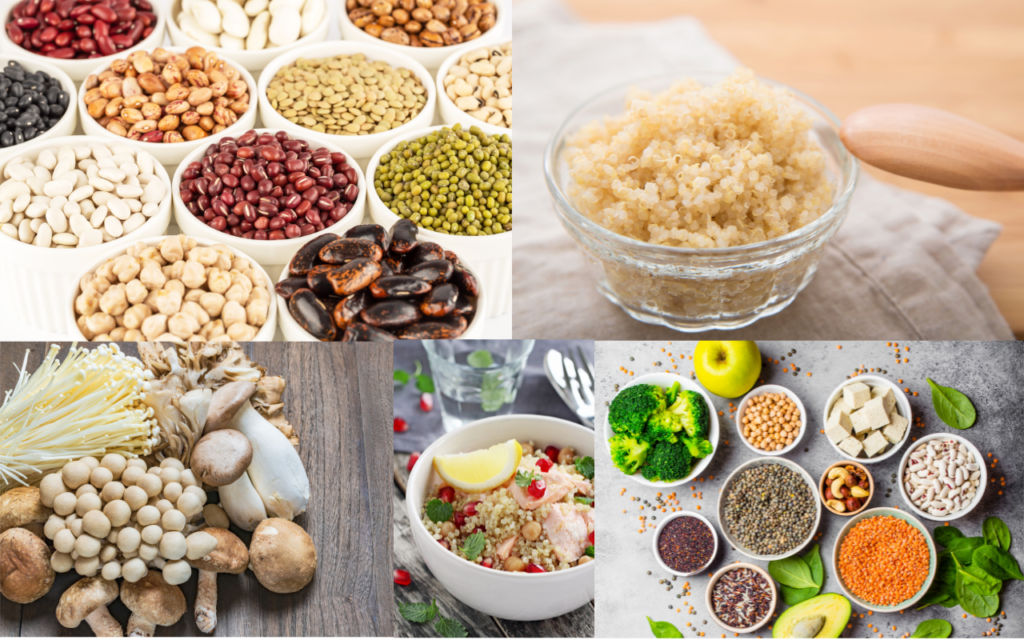
With plant-based proteins being key for maintaining health and well-being (due to their nutrient-rich profile packed with vitamins and minerals), our Son’s allergies have been a blessing in disguise for our family.
Of course we hope he’ll outgrow his allergies, but if we can maintain a low saturated fat diet, it’ll stand us in good stead for reducing the risk of chronic diseases such as heart disease and diabetes as we get older.
Their fibre content also supports our digestive health, aids weight management, and promotes a feeling of fullness for longer, keeping cravings at bay. Here’s more from the NHS about a vegetarian diet.
Let me know if you have other tips and advice – I’d love to hear from you and explore this topic in more detail.

